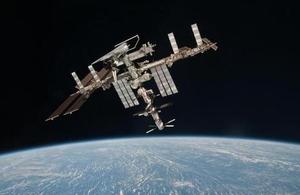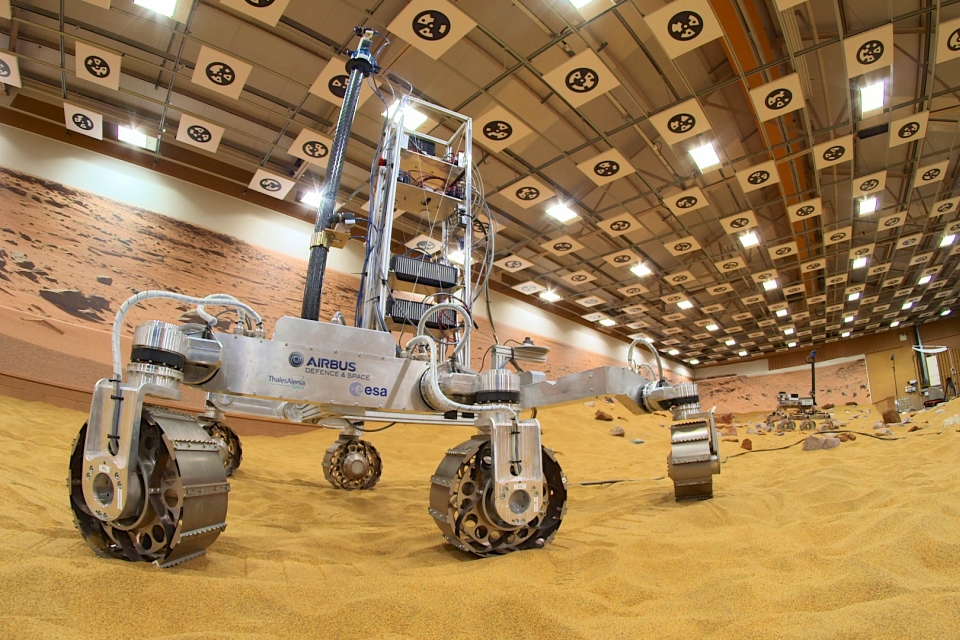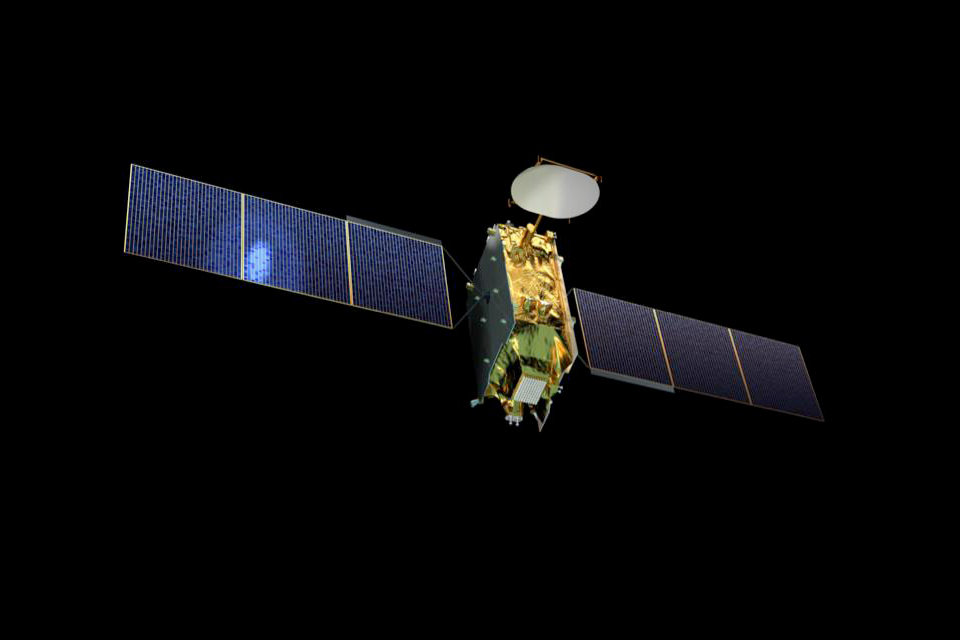UK space industry set to rocket with over £200 million of new investment for Europe’s space programme
The UK Space Agency is making an extra investment of over £200 million in Europe’s space programme.

International Space Station. Credit: ESA/NASA
- £47.7 million to play a leading role in Europe’s Mars mission and retain leadership of Mars rover development
- £49.2 million to give UK researchers access to the $100 billion ISS programme
- Increased investment in telecommunications, including £56.9 million for the development of a low-cost, flexible satellite worth over £1 billion to UK industry
This will provide the UK with increased leadership in a rapidly growing global sector and build on the UK space industry’s £11.3 billion contribution to the UK economy.
From Mars rovers to the development of the next generation telecoms satellites, the direction of Britain’s investment in European space projects was decided earlier this month (02 December 2014) as the Minister for Universities, Science and Cities Greg Clark finalised negotiations for the UK at the European Space Agency’s (ESA) Ministerial Council in Luxembourg.
The outcome of the Ministerial negotiations will strengthen the UK role in a number of areas, including telecommunications and microgravity research. The UK space industry forecasts that the new package of investment will enable it to pursue new markets worth over £1.5 billion. This will support the UK’s ambition to grow a £30 billion space industry by 2030.
Universities, Science and Cities Minister Greg Clark said:
Over the course of the Ministerial, we have secured the future of the UK in space. Our increased commitment to ExoMars means that the UK will be leading this inspirational project. And for the first time, the Union Jack will be flying on the International Space Station as a full partner.
Together with the team from the UK Space Agency, we have achieved an outcome that will keep British science and industry at the forefront of the global market for satellite technology and services. The real benefits that come back to the UK from our investment with key telecommunications projects will help us achieve our ambitious target to create 100,000 new jobs by 2030.
The UK’s new package of investment with ESA includes:
£47.7 million for the ExoMars programme, with the UK taking overall leadership of the rover module.

Prototype ExoMars Rover. Credit: Airbus Defence and Space.
The pan-European ExoMars mission will address the outstanding scientific question of whether life has ever existed on Mars and will be the first to deploy a non-US rover to the Martian surface to drill, collect and analyse samples.
By committing an extra £47.7 million to ExoMars the UK is not only guaranteeing that this high impact space programme will go ahead as planned, but will gain overall leadership of the rover module whose complete design, including the final integration and testing, will now be in the UK instead of Italy.
£130 million for the development of telecommunications technologies
Satellite telecommunications is at the heart of the UK space industry, with the previous projects within ESA’s ARTES telecommunications programme having generating £750 million of private investment and sales so far.
The new ARTES investment will include:
£56.9 million for Quantum-class comsat

Eutelsat Quantum-Class satellite. Credit: Airbus Defence and Space.
Through this investment the UK will lead the development of a new type of smart, lower cost telecommunications satellite and has also agreed the first order from major European satcom operator Eutelsat, who is calling it their ‘Quantum class’ satellite. Industry estimates that further commercialisation of this technology could win global orders worth over £1 billion. The satellite’s novel telecommunications payload will be developed by Airbus Defence and Space UK and carried on a new small geostationary satellite platform built by Surrey Satellite Technology Ltd. Eutelsat will establish a UK base to manage its involvement in the project.
£28.4 million for the Integrated Application Promotion programme (IAP)
The UK’s £28.4 million investment will continue the successful IAP programme which is managed at ECSAT in the UK and is already driving the creation and growth of businesses based on space data for markets including agriculture, medical services, fisheries and rail. ESA supplier evaluation suggests that the investment could generate returns of up to € 365 million.
£29.4 million for high throughput satellite services and applications
This new investment will fuel application research, development and manufacturing within the satellite broadband environment. The joint programme will stimulate significant growth for UK industry and support inward investment opportunities. The partnership will be run with the Satellite Applications Catapult, European SMEs and academia. Industry expects the creation of over 250 high skilled jobs in the UK and significant export opportunities.
£4.9 million for the European Data Relay System (EDRS)
The European Data Relay System (EDRS) will be an independent, European satellite system designed to reduce time delays in the transmission of large quantities of data from the Copernicus constellation and similar low-Earth orbit satellites. The UK is already host to the first of four operational EDRS receiving stations and will benefit greatly from the real-time Earth Observation data that this project will enable.
£11 million for Inmarsat Communications Evolution (ICE)
ICE is a joint programme with Inmarsat to develop an optimized and open platform for mobile satellite services to be developed within a business ecosystem from space manufacturers to application developers. The programme will support SMEs to innovate rapidly and will make space accessible across all sectors including automotive, utilities, media, transport and energy.
£49.2 million for ESA’s International Space Station programme
New investment in the ISS will give UK researchers access to the $100 billion ISS programme, allowing them to use the unique environment of space to carry out research and make important advances in areas such as materials science, additive manufacturing and medical/biological sciences. The money will also be invested in the demonstration of a UK-built communications terminal for the European module of the ISS, possible lunar research activities that ESA is considering, and new opportunities such as deployment of cubesats that can be used to test technology or undertake science experiments from the ISS.
Dr David Parker, Chief Executive of the UK Space Agency, said:
With the world space market likely to grow to at least £400 billion by 2030, the UK needs to stay in the game and build on its growing success. Our investment at this ESA Ministerial is targeted towards a smart mix of commercial opportunity and inspiring exploration. This confirms the UK as the forward-looking and business-friendly ‘place for space’ - especially as many of the projects will fuel the burgeoning UK Space Gateway at Harwell, Oxford.